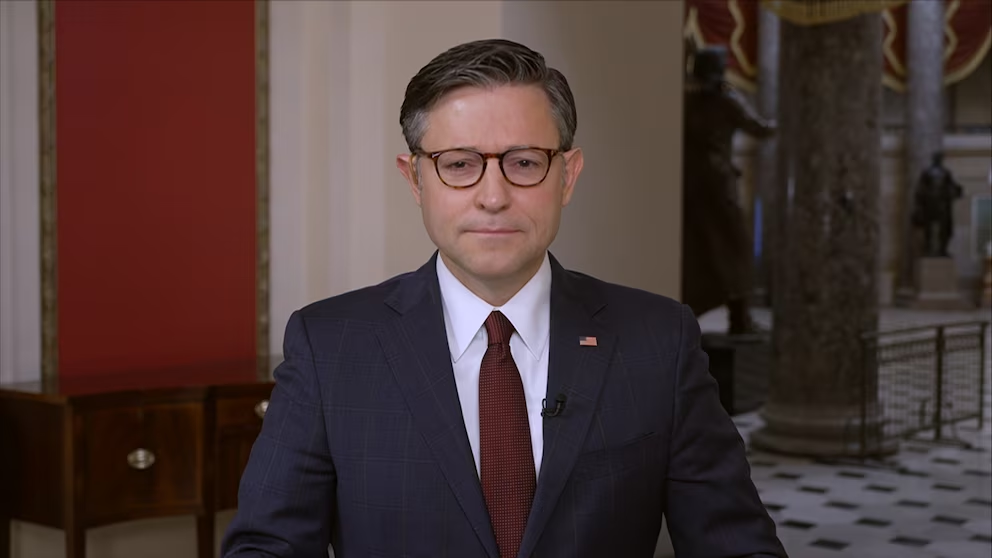
US government shutdown enters second day amid partisan standoff over healthcare
House Speaker Johnson refuses Democrats’ demands on Obamacare subsidies; both parties blame each other as impasse continues
As the United States government shutdown extends into its second day, House Speaker Mike Johnson has firmly defended Republican leaders’ refusal to negotiate on Democratic healthcare policy demands, while Democrats accuse the GOP of prioritizing politics over millions of Americans’ health insurance coverage.
Johnson: ‘Nothing to negotiate’
Speaking to reporters Thursday, Speaker Johnson, a Louisiana Republican, insisted that Republicans had acted in good faith by presenting Democrats with a clean funding bill identical to legislation they had previously supported during the Biden administration.
Johnson expressed frustration that Senate Democrats have repeatedly voted down the Republican Continuing Resolution (CR), which would extend government funding for seven weeks, despite having voted for nearly identical legislation 13 times during the previous administration.
The healthcare flashpoint
The impasse centers on enhanced Obamacare Premium Tax Credits, which are scheduled to expire in December. Democratic leaders argue that failure to address this issue now will cause millions of Americans’ health insurance premiums to spike dramatically.
At Issue: Obamacare Premium Subsidies
- Enhanced Premium Tax Credits set to expire December 2025
- Democrats warn premiums could more than double without action
- Republicans refuse to include healthcare provisions in short-term funding bill
- Democrats rejected Republican CR 13 times despite voting for similar bills under Biden
- Republicans refusing to consider Democrats’ $1.4 trillion counterproposal
Democratic leaders have vehemently opposed the Republican bill precisely because it fails to address the looming healthcare subsidy expiration, an issue they consider urgent and non-negotiable.
Partisan blame game intensifies
Both parties are engaged in a fierce public relations battle over responsibility for the shutdown, with each side accusing the other of refusing to compromise and harming American citizens.
Republican Position
Argument: Democrats are shutting down government by rejecting clean CR they previously supported
Strategy: Pass simple 7-week funding extension, then negotiate healthcare separately
Responsibility: “100% on Democrats”
Democratic Position
Argument: Republicans refuse to protect healthcare for millions of Americans
Strategy: Address expiring subsidies now or pass $1.4 trillion counterproposal
Responsibility: “Republicans own this shutdown”
Timeline dispute
Johnson countered Democratic urgency by arguing that extending the enhanced Obamacare subsidies is “not a simple issue” that will require weeks of negotiation. Both Johnson and Senate Majority Leader John Thune, a South Dakota Republican, have indicated willingness to discuss healthcare policy with Democrats, but only after the government reopens.
What happens next
The Senate has already voted on both competing continuing resolutions three times, with both failing to achieve the necessary support. The chamber is scheduled to vote again Friday, with passage appearing highly unlikely.
Shutdown Timeline
In a significant development, Senator Thune canceled a planned Saturday vote, meaning the shutdown will definitely last through the weekend. This decision extends the pressure on both parties to find a resolution.
Republican strategy: Wait it out
Republicans and the Trump administration are banking on a strategy of attrition, hoping that by Monday, enough rank-and-file Democrats will break with their leadership and provide the necessary votes to pass the Republican CR without any healthcare concessions.
This approach represents a high-stakes gamble that public pressure and the practical consequences of a prolonged shutdown will force Democratic moderates to prioritize government operations over healthcare policy negotiations.
Historical Context
During the Biden administration, the same Republican continuing resolution passed 13 times with Democratic support. The shift in Democratic voting behavior reflects both the changed political landscape under a Republican administration and Democrats’ determination to address the expiring Obamacare subsidies before they lapse in December.
Impact of the shutdown
As the shutdown continues, federal employees face furloughs or unpaid work, government services are disrupted, and various programs affecting millions of Americans are suspended. Both parties acknowledge that prolonging the standoff will increase harm to citizens, yet neither side has shown willingness to back down from their core positions.
Shutdown Consequences
Federal workers furloughed or working without pay; government services suspended; national parks closing; federal contract work halted; economic uncertainty increasing. Both parties agree “more and more people will be hurt” as shutdown extends.
Johnson emphasized this point in his Thursday remarks, warning that Democratic intransigence would lead to increasing harm if the standoff extends through the weekend and beyond.
The path forward remains unclear
With neither party showing signs of compromise and both sides convinced they hold the moral and political high ground, the path to resolving the shutdown remains uncertain. Democrats insist healthcare must be addressed immediately, while Republicans maintain that government operations must be restored first before any policy negotiations can occur.
The coming days will test whether either side blinks first, whether enough Democrats defect to pass the Republican bill, or whether mounting public pressure forces both parties back to the negotiating table for a compromise that addresses both immediate funding needs and the looming healthcare subsidy expiration.
As Speaker Johnson noted, time is not on anyone’s side: “If they drag this one through the weekend, more and more people will be hurt.” The question is whether that reality will prove sufficient to break the deadlock.
About The Author
Discover more from Faith & Freedom News - FFN
Subscribe to get the latest posts sent to your email.



